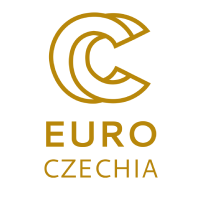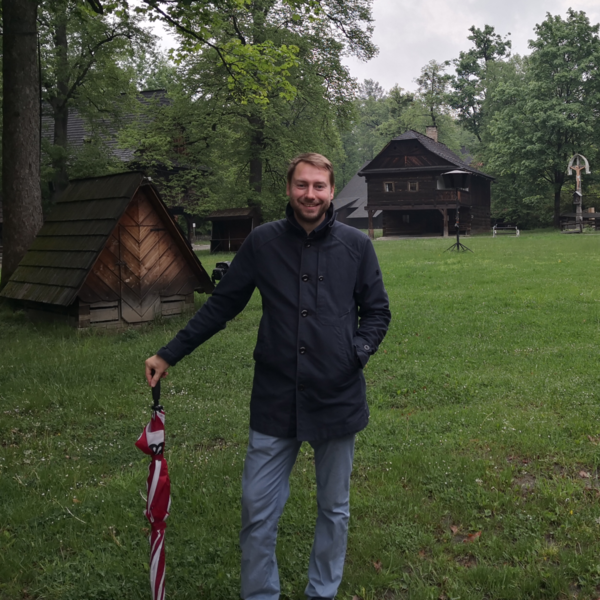The HPCSE 2022 conference brought together experts from HPC and related scientific disciplines. We interviewed one of them – Andreas Lintermann from the supercomputing centre in Jülich, Germany who coordinates the European Centre of Excellence for Exascale Computing “Research on AI – and Simulation-Based Engineering at Exascale” (CoE RAISE). We are bringing you the interview with him in the following lines and we are looking forward to future collaboration.
Can you recall what made you interested in Computer Science so much that you chose it for your studies and career?
My passion for Computer Science started when I was a kid. I was offered an Atari computer as a birthday or Christmas present, I do not really remember, at around the age of 7. I played games and had a lot of fun. At that time, I was also very much interested in understanding how to program computers and started this by simply copying source code from a poster that came with the Atari.
Later on, at school, I opted for Computer Science as a specific topic. The teacher was very supportive, and I even helped him to administrate the computer network at school.
Briefly, Computer Science was one of my main interests. That is why I decided to study Computer Science at RWTH Aachen University. At first, my focus was indeed not on HPC – I majored in Computer Graphics and Multimedia. It was only during my Ph.D. studies that I focused more on parallel implementations and gained a background in HPC. Subsequently, I became the group leader of the Simulation and Data Lab FSE, bridging the Engineering community of the University to the HPC experts at the Jülich Supercomputing Centre (JSC). This is when I got in even closer contact to JSC, where, after some time, I started to work full time. Since then, HPC has become a crucial part of my daily work life and there is no way to avoid it (laugh).
At the Jülich Supercomputing Centre, you are the Industry Relations Manager. What exactly does this job entail?
This initiative started in 2016 when the Head of the Administrative Division at JSC asked me if I would be interested in providing support to industry and small and medium enterprises (SMEs). I joined the Industry Relations Team (IRT), representing the first point of contact for industry approaching the research center with HPC-related matters. At first, the activities were only about selling computing time and we were only able to work reactively. That is, we did not actively approach industry nor did we directly offer our services to them.
With the EuroCC project, we want to adopt a more proactive approach. In fact, the idea is to move away from a simple provision of computational time. Instead, it is the aim to set up true collaborations with industry and to offer them our consulting or contract research services.
Regarding good practices, we are able to benefit from the expertise we have in the different SDLs, which, for example, operate in the realm of Engineering, Biology, Astrophysics, etc. With the support of the domain scientists, it is possible to find tailored solutions for individual requests coming from industry. A company can approach the IRT and we are able to match the requirements to the appropriate expertise at JSC.
How are you enjoying the HPCSE 2022 conference, and what benefits is your participation at it bringing?
At first, I must admit that this is the most beautiful scene for a conference I have ever been to. The food is brilliant and I really enjoy the social events.
As far as the benefits are concerned, I do much appreciate connecting to other people, exchanging knowledge, and learning what other people are working on. Also, attending conferences in general again represents an opportunity to find future partners for my projects. The personal exchange was really something that I missed very much during the COVID-19 pandemic and this conference represents a turning point as it is the first live event I’m able to attend after more than 2 ½ years – it feels so good to go back to normal.
Has any of the research projects presented at the conference drawn your attention?
Yes, many. For example, today I attended the talk by Carsten Burstedde called Adaptive mesh refinement in HPC and applications in the geosciences, which I found very interesting because it is very much related to my research. I also really appreciated the presentations around the EuroCC project as I’m also involved in the establishment of the EuroCC National Competence Center (NCC) in Germany. I believe that there is significant overlapping interest in both the Czech and German NCCs, which could spark a more intensive collaboration. Furthermore, several presentations and posters related to biofluid mechanics or even to neuroscience caught my attention.
In summary, I believe that this conference provides a good and inhomogeneous mixture of research projects, allows to identify commonalities between different domains, and inspires interdisciplinary thinking across borders.
Since 2021, you have been coordinating the European Union CoE RAISE project (The European Center of Excellence in Exascale Computing “Research on AI- and Simulation-Based Engineering at Exascale”), which you are presenting in your contribution to the conference. What does this project consist of and who will benefit from its results?
The main idea of this project is to develop new artificial intelligence (AI) technologies that make use of the next generation of supercomputers (Exascale systems).
The developments are made along various kinds of use cases coming, for example, from the energy sector, aerospace, transportation, fundamental physics, or manufacturing. Two kinds of use cases are considered in this project. Compute-driven use cases are those that generate most of their data by large-scale numerical simulations, for example, using Computational Fluids Dynamics (CFD) methods. The data-driven use cases employ sensor technologies to gather huge amounts of data, for example, the experiments that are run at CERN with the Large-Hadron Collider (LHC) collect massive amounts of data that need to be processed.
Orthogonal to these use cases, which are driven by the domain scientists, AI and HPC experts contribute to the project by enabling code scalability, development and inclusion of novel AI technologies into the use cases, and by performing porting and performance engineering activities on cutting-edge production and prototype HPC systems.
It is the aim to close the gap between domain, AI, and HPC experts and to provide the European research and industrial community with a unique AI framework that covers AI training scripts, pre-trained models, AI workflows, as well as best-practice guides and tutorials. Related to that, CoE RAISE offers free education on AI technologies and on the usage of cutting-edge HPC hardware. In the future, services around those technologies will also be provided to the community.
What work-related activities are you looking forward to in the coming months?
At the moment, a lot of activities are around CoE RAISE. We are preparing for the review coming up in September and more deliverables to be submitted to the EU at the end of June. Furthermore, we are pushing our activities in the EuroCC project and continue to enhance our service and educational portfolio, as well as strive for further collaborations with other NCCs.
Outside of that, we have other running proposals and projects.
In September, we expect to start another EU-funded project called interTwin related to the development of digital twins for various applications. The aim is to develop a generalizable digital twin engine. Together with CERN, we are going to concentrate on the development of generalizable workflows for AI.
We submitted a draft proposal to a call from the German Ministry of Education and Research regarding AI in systematic medicine. In this draft proposal we suggest to continue our work that we perform in the context of the analysis of respiratory flows. Here, we aim at including AI technologies for pathology classification and shape optimization as a suggestion for surgery planning in the workflows. As the proposal has been submitted just recently, we are still waiting for the review, and hope for a positive evaluation.
The German Government decided to spend 15-billion Euros on supporting the structural change in the coal mining region, where the research center Jülich is located. Therefore, we proposed the creation of the so-called Agency for Cognitive Computing (ACC), whose aim is to provide regional industry and SMEs with expertise in AI and HPC, and work together with them on their problems in this respect. This will be accompanied by the extension of an existing educational program in the direction of data science and AI. New young researchers are educated in these topics to directly work together with companies on-site on their problems and make use of the HPC resources the research center has to offer.
Thank you for the interview and we wish you plenty of further achievements.
Andreas Lintermann is a postdoctoral researcher at the Jülich Supercomputing Centre (JSC), Forschungszentrum Jülich, Germany. He is the Head of the Simulation and Data Laboratory ‘‘Highly Scalable Fluid & Solids Engineering’’ (SDL FSE) at JSC. Since January 2021, Andreas is the Coordinator of the European Center of Excellence in Exascale Computing “Research on AI- and Simulation-Based Engineering at Exascale” (CoE RAISE).
His research focuses on bio-fluid mechanical analyses of respiratory diseases, lattice-Boltzmann methods, high-performance computing (HPC), high-scaling meshing methods, task-based programming models, modular supercomputing architectures (MSA), machine learning (ML) algorithms, and efficient multi-physics coupling strategies.





